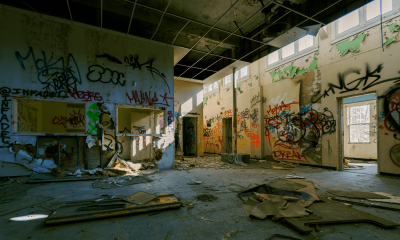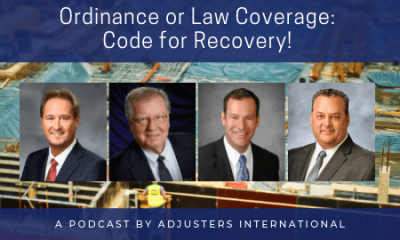3 Things Excluded From Your Standard Insurance Policy
Property insurance policies for homes and businesses are not all-encompassing. In fact, most standard policies contain exclusions that if not understood by the policyholder before a disaster strikes, can significantly affect their financial settlement post-disaster.
Understanding the depth of your policy can help you decide whether or not to purchase additional coverages to balance out your financial risk for weather-related events and estimate the impact it may have on your property and wallet.
Flooding
- Flooding is not covered under most property insurance policies; however, coverage can be purchased separately. Protection from flood damaging waters can be purchased through the National Flood Insurance Program (NFIP).
- Be cognizant of the after-effects of water damage, such as mold growth, to help you mitigate future problems with your insurance coverage before disaster occurs. Having the foresight to understand how a natural disaster will impact your property initially and companied with an understanding for the issues that may arise after the fact is the best way to cover any possible insurance gaps.
- For more information on special coverages, covered property, how flood damaged are valued, purchasing additional coverages and estimating damages, read our Adjusting Today publication on floods or visit the NFIP’s website.
Earth Movement/Landslides/Sinkholes
- Much to the amazement of home and business owners, earth movement, such as landslides, sinkholes and earthquakes are also excluded from common standard property insurance policies. Earth movement (or earthquake) protection is available for purchase in addition to your regular policy. Unlike typhoons and winter storms that typically affect only certain locations, earthquakes are a disaster that can happen anywhere in the United States at any time, and no state is invulnerable.
- Earthquakes, earth movement, landslides and sinkholes can severely damage property and the contents inside. Foundations can be ruined, compromising a facilities' structure and can lead to possible collapse issues. In the aftermath of an earth movement disaster, you should have your property thoroughly inspected by a professional to ensure that all damages are identified and any future hazards contingent on the event are noted as well.
- For more information on adding earthquake coverage, deductible issues, and specific details on insurance terminology, read our Adjusting Today publication on Earthquake Insurance.
Building Code Upgrades
When a building is damaged during a weather-related event, oftentimes the policyholder must make a decision as to whether or not to replace, repair or rebuild the property. After a severe loss, the updates made to the building must also conform to the latest building codes; many policyholders are shocked that the associated costs are not included in a standard property insurance policy.
- Building codes are updated frequently and include issues such as:
- Building heights
- Fire protection (i.e. sprinkler systems, alarms)
- Handicap accessibility
- Interior finishes
- Materials used in foundation, wall and roof construction
- And more
- One way to protect yourself from having to pay a substantial amount to comply with the latest building codes following a natural disaster is by having Ordinance or Law Coverage added to your standard insurance policy.
- For more information on adding coverage to cover the additional costs, read our Adjusting Today publication on Ordinance or Law Coverage.
As a home or business owner it is vital to understand what your property insurance policy covers and what it excludes before disaster strikes. Oftentimes, insurance policies can be difficult to understand and have many exclusions and fine print. If you need help understanding what coverages you need, reach out to us today for a free consultation and analysis of your policy.











